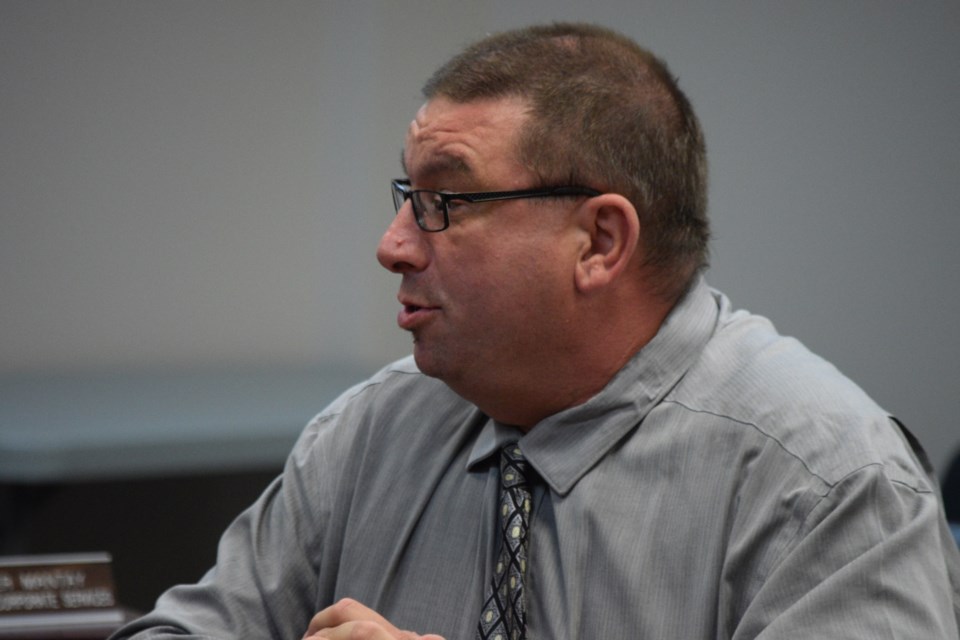BARRHEAD - Donald Copeland wants Town of Barrhead councillors to know they have a new tool to help them combat the community's homelessness problem.
Copeland is the chief executive officer of the Olive Branch Outreach Society, a not-for-profit society based in Onoway that provides family and community programs for vulnerable Albertans who need a "hand up, not a hand out."
Copeland and his wife, Kim, gave a presentation to councillors during their July 12 meeting, giving them an overview of the organization, which received its non-profit society status in April.
"The reason why we are focusing on communities like Barrhead is that people don't realize that there is a homeless problem," he said, adding not only does the community have homeless, but the number has increased due to the pandemic.
Currently, he said the Olive Branch has a staff of nine volunteers that work out of their homes to provide clients with assistance applying for government benefits such as income support, AISH (Assured Income for the Severely Handicapped) and Canadian Pension Plan (CPP), as well as helping people with their job search, resume writing or find affordable housing.
"The list is almost endless. We will not provide financial aid, but we will help you find what you need to get back on your feet and sustain yourself to a quality of life that you not only deserve but earned as a human being," he said.
Copeland added the Olive Society differs from organizations like Barrhead and District Family Support Services (FCSS).
"They can only go so far in what they are allowed to do. The Olive Branch is able to go just a little bit further," he said. "We are not here to recreate the wheel but add another spoke to make it that much stronger."
Copeland said another way they could assist the community fight some of its social issues is by helping them identify "where problem areas" are and locate resources other community organizations are unaware of.
He noted his wife worked at the McCullough Centre for 15 years until its closing in February 2021. The McCullough Centre was a provincially run men's addiction and mental health treatment facility in Gunn.
"A large number of the centre's clients were from Barrhead and they returned home when they were back on their feet," Copeland said.
He noted they also hope to take away the stigma that often accompanies homelessness.
Copeland added organizations such as the Olive Branch are more important in rural communities as people do not have the same supports available to those in urban centres.
"Yes, they do have larger populations, but that doesn't mean the problem is any less prevalent," he said, suggesting that on a per capita level, rural communities have as many homeless as a city like Edmonton. "We need to let the provincial and federal governments know that there is a problem and that they are not doing enough to help smaller communities. Edmonton, Calgary they get huge handouts, but communities like Barrhead, Onoway, Stony Plain get next to nothing."
Coun. Dausen Kluin asked what communities the organization served.
Copeland replied that in addition to Barrhead, the Olive Branch serves the eastern end of Lac Ste. Anne County and some of the outer edges of Parkland County, most notably, the previously mentioned Stony Plain.
Kim added that the reason why they are focusing specifically on those areas, besides the fact that is where their board and volunteers are, is because that is where the need is.
"When you start getting into Edmonton, if you want to use them, they have the resources," she said. "If you live in the smaller, outlying communities, you have to go into the city, and from my experience, people don't want to go to the city and get drawn into that crowd."
Kluin also asked if the Olive Branch had reached out to FCSS.
Copeland admitted he hadn't, but it is worth mentioning that FCSS executive director Karen Gariepy was in the gallery.
"It's a slow process," he said, noting they were continuing to meet with municipal councils and other community groups such as victim services units and the RCMP and are actively recruiting volunteers.



